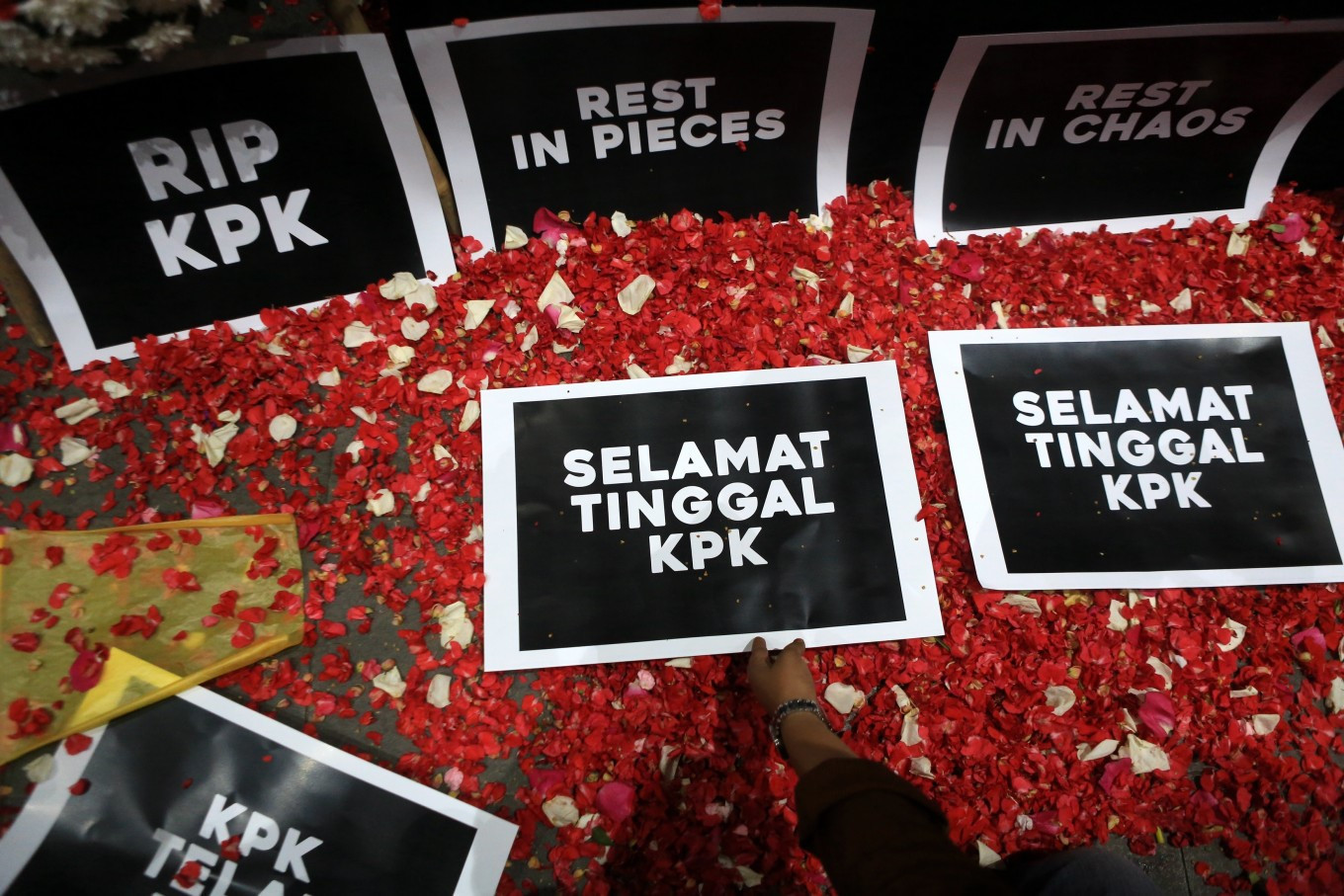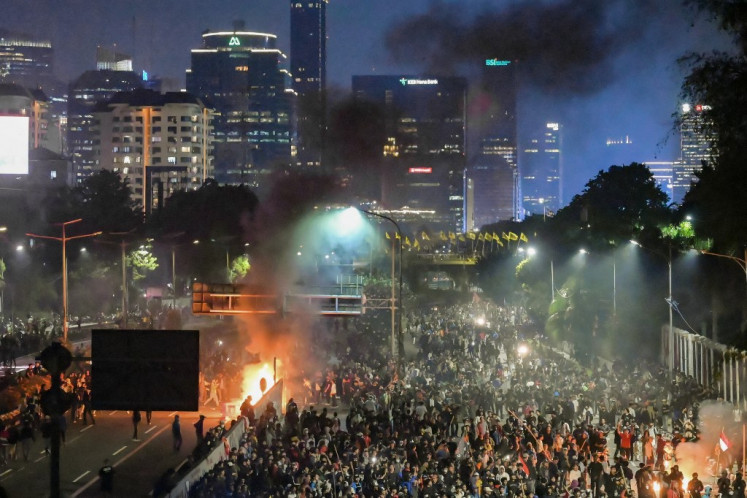Popular Reads
Top Results
Can't find what you're looking for?
View all search resultsPopular Reads
Top Results
Can't find what you're looking for?
View all search resultsGovt to make KPK sole graft-fighting agency
Antigraft activists have called for the empowerment of the Corruption Eradication Commission (KPK) after an amendment to the KPK Law brought the once-powerful institution into a rapid decline.
Change text size
Gift Premium Articles
to Anyone
A
mid criticism of a toothless Corruption Eradication Commission (KPK) and poor graft-fighting efforts in the country, the government has said it is considering making the agency the sole institution in the country with the authority to investigate and prosecute graft cases.
Coordinating Law, Human Rights, Immigration and Correctional Services Minister Yusril Ihza Mahendra said it was reasonable to question whether the country still needed the KPK, more than two decades after its establishment, as other law enforcement institutions such as the National Police and the Attorney General’s Office (AGO) also investigated and prosecuted corruption.
He said if everything could be handled by the police and the AGO, it would be better to unify corruption eradication responsibilities under just one institution. This, he added, would require reforms to the Corruption Law.
“So, if we refer to the UN Convention Against Corruption, the main pressure point is bribery. There has been much input from law enforcement, academics and activists involved in the fight against corruption” advocating for a focus on bribery in eradicating corruption, he told reporters on Tuesday after an event commemorating International Anti-Corruption Day, which fell the day before.
Read also: New KPK leaders prompt pessimism over fight against graft
Antigraft activists have called for the empowerment of KPK after an amendment to the KPK Law brought the once-powerful institution into a rapid decline.
A series of gross violations of the antigraft body’s code of ethics involving former chairman Firli Bahuri and former deputy chairman Lili Pintauli Siregar hurt the agency’s reputation further.
Firli was forced to resign from his position last year after the Jakarta Police named him a suspect for allegedly extorting former agriculture minister Syahrul Yasin Limpo, whom the KPK helped bring to justice on accepting bribes. Lili stepped down just before she faced a disciplinary hearing on allegations of accepting gratuities.
The influence of the police in the KPK is also growing, with more high-ranking officers being transferred into leadership and supervisory positions.
Read also: Police unveil new antigraft corps
Transparency International said the diminishing performance of the KPK and the backsliding of democracy were among the major factors worsening corruption in the country. Indonesia scored 34 in the Corruption Perceptions Index (CPI) last year, the same as its score the year before. Indonesia’s CPI standing reached its all-time peak in 2019 with a score of 40 and afterward went into steady decline as a result of the amendment of the KPK Law.











